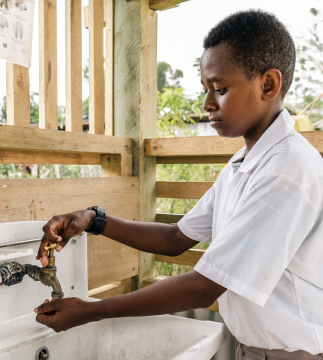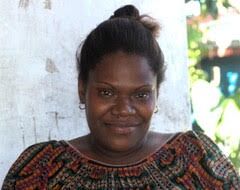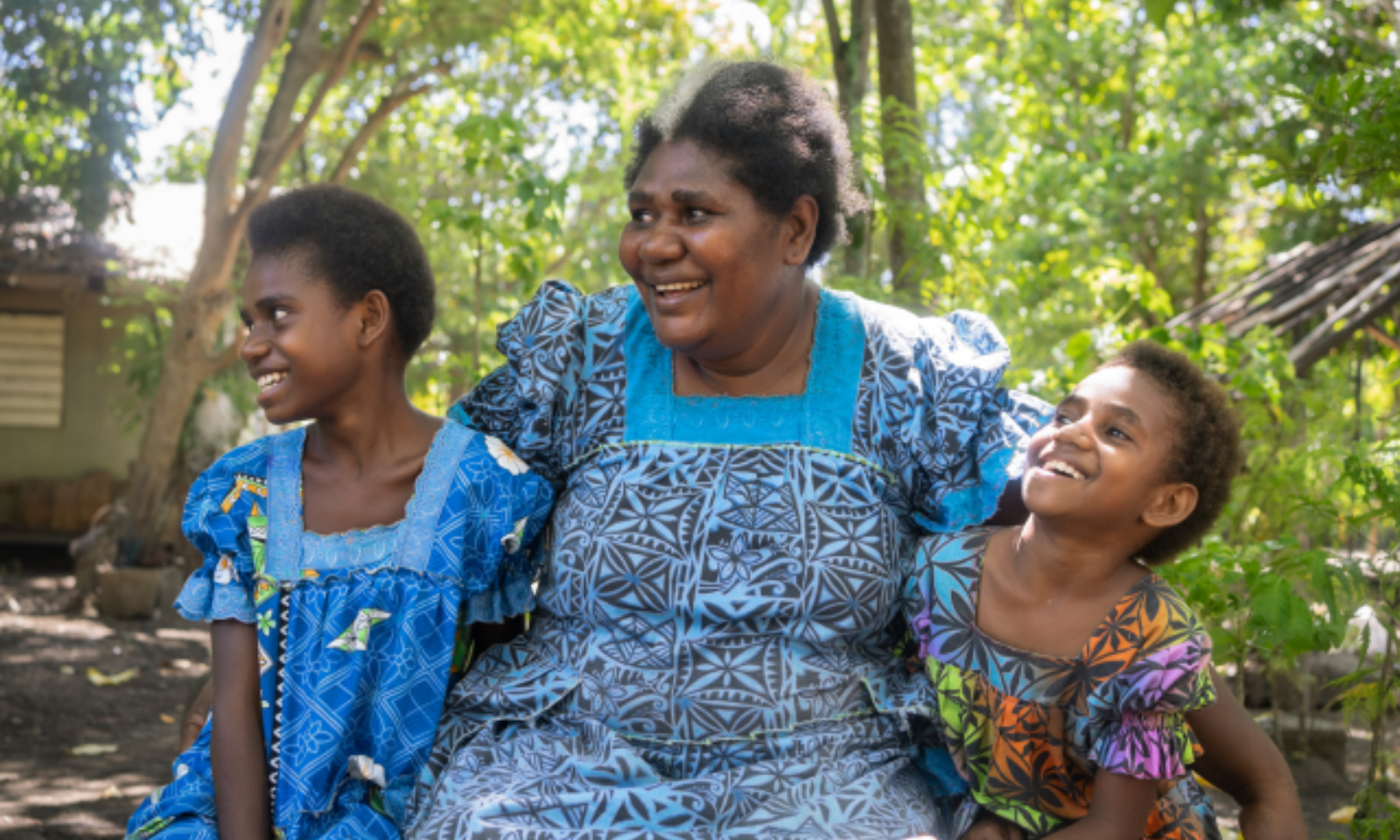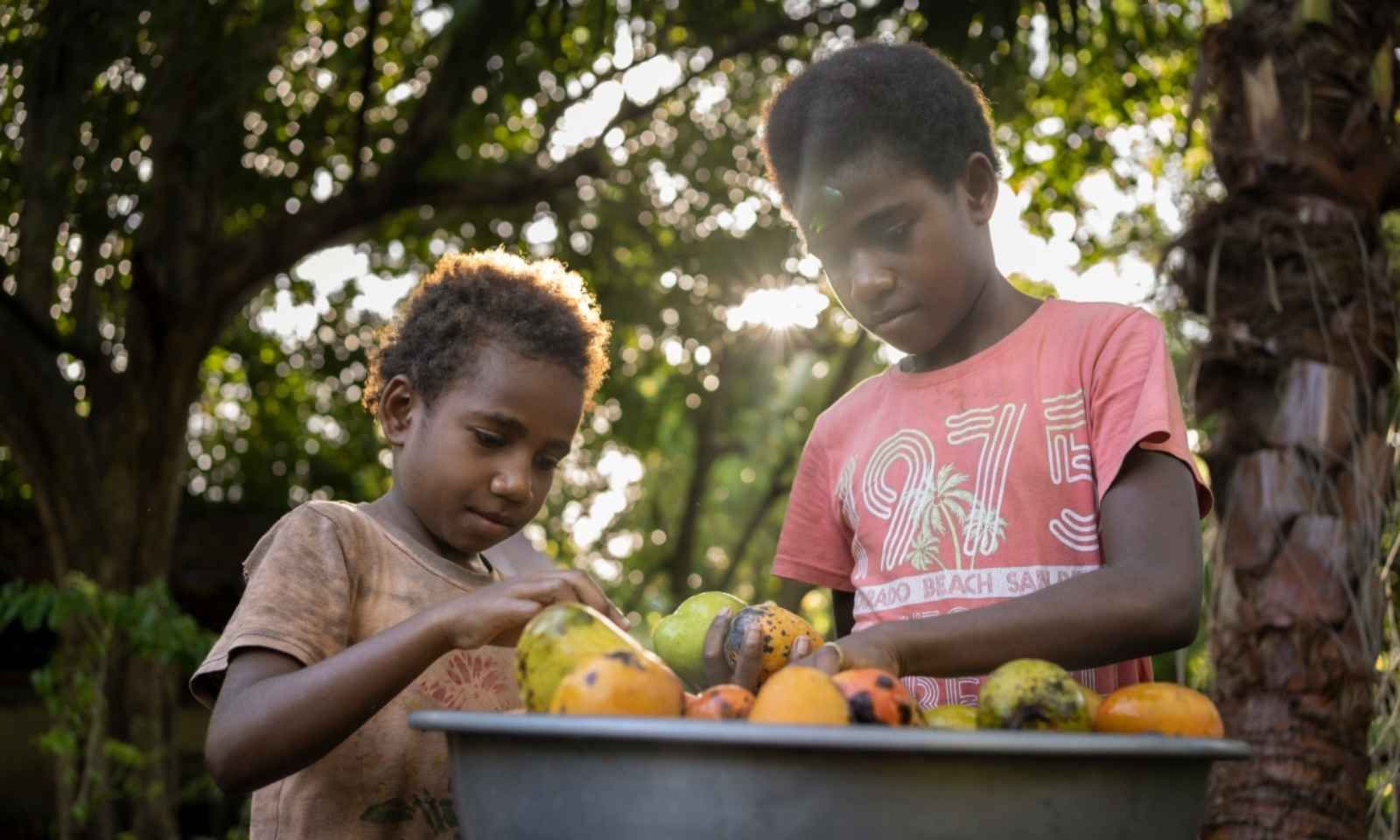

Photo/Save The Children/Conor Ashleigh
Save The Children: Climate change poses critical threat to child nutrition in the Pacific
Cyclones, floods, and rising seas are making it harder for families in PNG, Solomon Islands and Vanuatu to access nutritious food.


Last-gasp drama and big statements set up Pacific blockbuster in Super Rugby opener

A.R.T sets new Pacific music pace with ‘First Thursday’ releases



Last-gasp drama and big statements set up Pacific blockbuster in Super Rugby opener

A.R.T sets new Pacific music pace with ‘First Thursday’ releases

A new study warns climate change is driving child malnutrition in Papua New Guinea, the Solomon Islands, and Vanuatu as extreme weather events become more frequent.
Commissioned by Save the Children’s Regional Office and released on World Food Day, the study finds that climate-related disasters are making it harder for families to grow or buy nutritious food, contributing to malnutrition among mothers and children.
The report, titled, Climate Change and Nutritional Vulnerability, says Melanesia faces a “triple burden of malnutrition”, including undernutrition, obesity, and micronutrient deficiencies.
In an interview with William Terite on Pacific Mornings, Polly Banks, Vanuatu Country Director for Save the Children, says the link between climate change and child nutrition is often overlooked.
“While it’s been clear to us on the ground in these three countries that climate change is affecting nutrition, there was very little data showing how these impacts play out,” she says. “The issues are often looked at separately, but they’re highly interconnected and need to be addressed together.”
Banks says poor nutrition during pregnancy and childhood can have lifelong consequences.
Listen to Polly Banks' full interview below.
She says repeated cyclones and floods destroy crops, damage fishing grounds and coral reefs, and reduce access to essential nutrients such as protein, iron, and zinc.
“Here in Vanuatu, stunting among children under five is 29 per cent, but it rises to 48 per cent in Papua New Guinea, where anaemia affects nearly half of children under five,” she says.
“We’re also seeing rising overweight and obesity levels in women and children, which can contribute to non-communicable diseases”

Food and water quality remain pressing issues for children in Vanuatu, Papua New Guinea and the Solomon Islands. Photo/Save the Children/Markson Taiki
“When I arrived for my first year working here as the country director in Vanuatu in 2023, we had three severe cyclones just in the first year.
“Even four or five months after those cyclones, the food hadn’t regrown that had been destroyed. Many people here rely on backyard gardening for nutrients. When crops are gone, children and their families have to rely on imported foods, often non-nutritious. It just makes a real struggle to keep children fed, fed well, and also protected from illness.”
In Vanuatu’s Shefa Province, a 32-year-old mother named Annette says climate change has had a serious impact on local gardens.
Annette says that the quality of some local produce is not what it was 10 to 15 years ago.
“Our small planting areas are no longer healthy or fertile. I see children becoming malnourished because they’re not eating the right kinds of food. Instead, they’re filling up on things like uncooked noodles, sweets, and soft drinks.”
The study highlights the importance of the first 1000 days of a child’s life, from conception to their second birthday, as a critical window for intervention. A participant shares how malnutrition affects infants.

Annette is a 32-year-old mother of two, currently pregnant with her third child. She lives in Vanuatu’s Shefa Province which was severely hit by twin tropical cyclones Judy and Kevin in 2023. Photo/Supplied
“The baby feels unsatisfied with breastfeeding,” the participant says. “Maybe because the mother’s breast is not filled with milk for the baby, because of a lack of food, vegetables, fruits.”
In all three countries, food prices can sometimes double after cyclones. Lower-income households, which already struggle to afford nutritious food, may resort to selling high-quality produce to supplement their income.
Another participant in Vanuatu says, “Before, people used to share their food. Now everyone is trying to keep enough for their own family.”
Looking ahead
The study calls on Pacific governments and partners to embed nutrition into climate adaptation efforts across sectors such as agriculture, health, water systems, and infrastructure. Current initiatives include targeted nutrition interventions in Papua New Guinea and multi-year community resilience programmes in the Solomon Islands and Vanuatu.
“We are calling for increased attention on embedding nutrition in climate adaptation efforts and to increase climate-sensitive approaches into key sectors, food, health and water systems,” Banks says. “We have an opportunity to act now, before the impacts of climate change on nutrition become irreversible.”
She says there are promising innovative approaches, such as a four-year project in Vanuatu, funded by the Australian NGO Cooperation Programme, which supports climate-resilient water, hygiene, and food systems in the Sanma and Shefa provinces.

A study links the impact of climate change to malnutrition in children. Photo/Save the Children/Conor Ashleigh
“The community is testing out different methods like solar drying on church rooftops and preserving food using solar-powered machines that vacuum-seal it, allowing communities to stockpile in ways they have never done before,” Banks says.
She also points to the International Court of Justice ruling in July, which was driven by Pacific leaders and youth, obliging countries to protect children’s health from climate change.
“We worked really closely with the Vanuatu government to embed children’s voices in that climate action,” Banks says. “What gives me hope is seeing children in the Pacific speak up and demand their rights are met in relation to this climate crisis, which is a children’s crisis.”

Children need a range of fruit and vegetables for their development. Photo/Save the Children/Conor Ashleigh
Regional response
In Fiji, communities in the central and western provinces are being taught to plant vegetables in raised garden beds to mitigate the effects of flooding. On Tanna Island in Vanuatu, villagers are encouraged to grow and sell high-value crops such as peanuts, vanilla, and coffee beans.
The Secretariat of the Pacific Community (SPC), an international development organisation, oversees the Pacific One Health Programme. The programme recognises the connections between human, animal, and environmental health in the region and promotes collaboration among multiple sectors to address the need for clean energy and air, along with safe and nutritious food.
An example of this initiative is looking at how health facilities can be made climate-proof, ensuring that communities have access to clean and resilient drinking water sources.